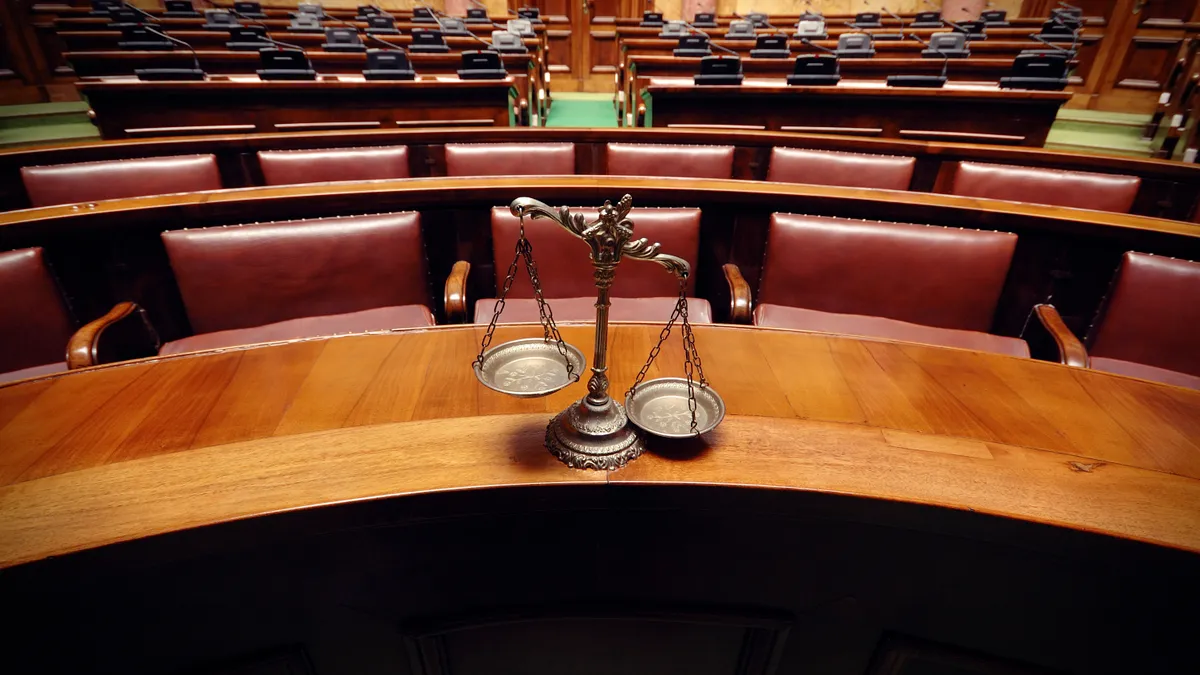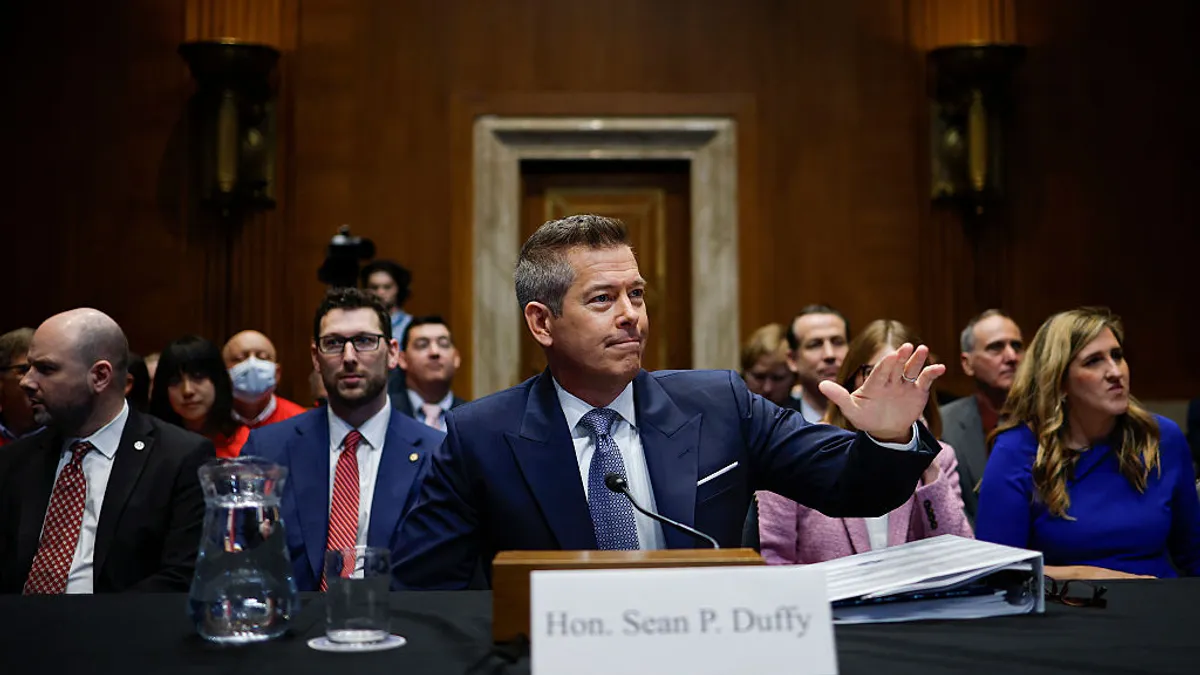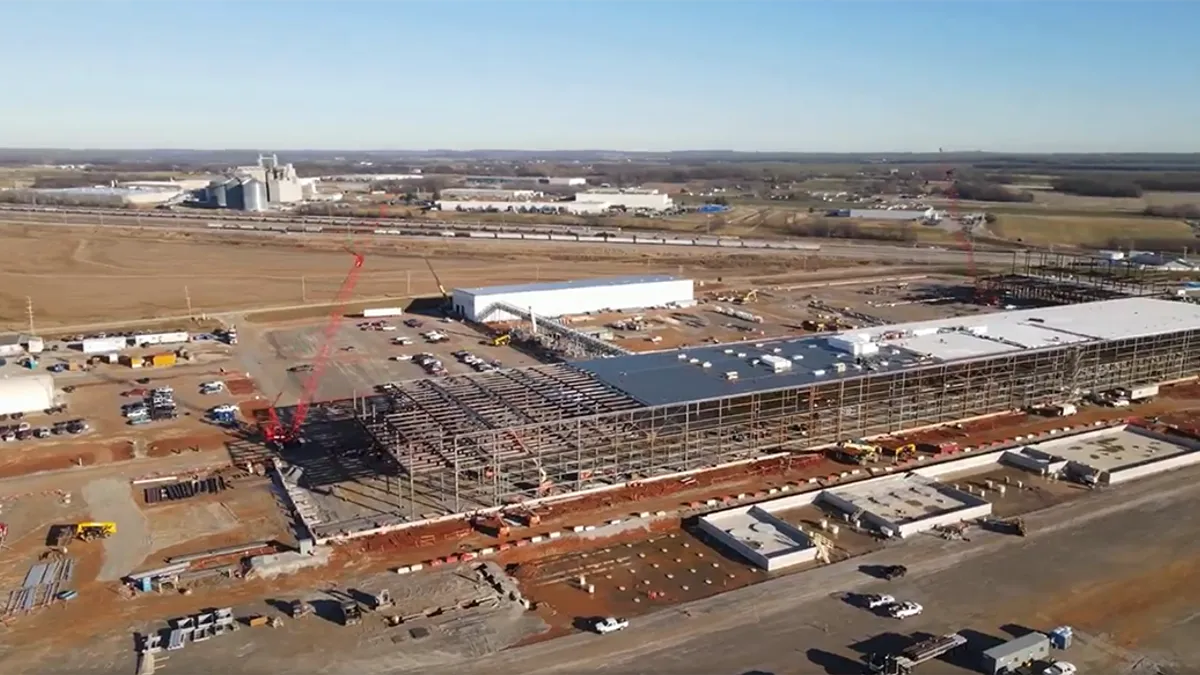It seems that authorities across the U.S. have pumped up their campaigns to eliminate contractor misconduct of all kinds and dish out severe punishment, including criminal charges, for violations and offenses traditionally met with a slap on the wrist or a monetary fine.
Nevertheless, is there really a crackdown, or is it just a matter of a few high-profile cases hitting the news in a relatively short time span? Construction law experts say the shift toward stricter enforcement and harsher penalties in the construction industry cannot simply be chalked up to coincidence.
"We’ve seen a big uptick in prosecutors' offices, both federal and state, going after construction companies for a host of different activities," Thomas Kokalas, former prosecutor and partner in the New York City offices of Bracewell & Giuliani, LLP, told Construction Dive.
Focus on DBEs
A priority area of focus for prosecutors these days, Kokalas said, is that of construction minority or disadvantaged business enterprises (DBE’s). In fact, recently, three Pennsylvania executives were in the spotlight when they pleaded guilty to setting up a shell company, with a woman as figurehead, in order to win $19 million of federal and state transportation projects over 16 years. Each executive now faces five years in prison and hefty fines for taking advantage of the U.S. Department of Transportation’s mandate to earmark 10% of its contracts for DBEs.
On the flip side however, according to attorney Andrew Richards, a partner at New York-based law firm Kaufman Dolowich Voluck, investigators are also focusing on firms that are supposed to hire DBEs. "The requirements are very high now, and it’s been very hard over the years to really satisfy them. There aren’t enough [DBE] firms out there that really can do the actual work," he told Construction Dive.
Richards said general contractors often face large, liquidated damages on a project if they fall behind schedule, and, if there aren’t enough qualified DBEs, they'll supplement the DBE's workforce with their own.
These sorts of cases, Kokalas said, are "low-hanging fruit" for prosecutors because of the financial paper trail created in the course of public works projects. "All they have to do is put together the financial records and probably look at the ownership of the two companies to find the similarities," he said.
Safety violations
Contractor safety violations are also in the news lately. In August, a California construction company owner and project manager were sentenced to two years in prison after a day laborer was killed in a concrete retaining wall collapse. Later that month, OSHA fined Kehrer Brothers Construction, as well as manager Joseph Kehrer, $1.8 million for willfully exposing employees to asbestos. In addition, in June, the U.S. Department of Justice indicted a roofing company owner for allegedly telling workers to lie to OSHA investigators about fall protection systems in place on one of his job sites after a worker fell to his death.
Where safety is concerned, Kokalas said, construction professionals should expect OSHA and other government agencies to pursue those cases vigorously. "If there are safety concerns where people's lives are going to be impacted, whether it's just a person on the street walking on the sidewalk or workers, if an owner is cutting corners and putting people's lives at risk, I think you're going to see prosecutors' offices go after them individually more often," he said.
Kokalas added that regulators are usually willing to give a break to companies trying to create a safe work environment. "They’re going to be looked at as a good corporate citizen, and it's the contractor who ignores the rules or ignores the regulation who ends up getting in real trouble."
Misclassifying employees
Another emerging area of prosecution, according to Michael Davis, attorney at the Atlanta offices of Chamberlain Hrdlicka, is Department of Labor violations, specifically the misclassification of employees as independent contractors, which can leave companies owing overtime pay.
"The overtime liability can be pretty significant," Davis told Construction Dive, "and when the company doesn’t have the assets, the federal government is going after the contractor owners."
Davis said many of these companies are violating OSHA and state workers' compensation regulations, as well. "They aren’t providing a safe work environment for these individuals, and many times they aren't providing workers' compensation."
Contractor-homeowner disputes
Even prosecution against seemingly perennial home-improvement contractor fraud seems to be gaining traction, Richards said.
A Connecticut contractor was sentenced to prison this month for bilking an elderly couple out of $36,000 in return for shoddy work, and complaints of contractors taking advantage of Hurricane Sandy victims keep pouring in. Financial shenanigans, Richards said, are the underlying issue in most homeowner complaints he sees.
For example, in the normal course of business, Richards said, some contractors pay the bills from one job with money they receive from another, and if a subcontractor doesn’t get paid in the shuffle, then there’s trouble. "That's a diversion of trust funds. You can't do that, and it also carries criminal penalties."
Richards said this law applies to both commercial and residential work, but homeowners tend to be more vocal about contractor problems, and he believes homeowner persistence is partly responsible for driving the recent crackdown.
"They're tired of home improvement contractors ripping off owners, leaving the claims by subcontractors and incurring legal fees," Richards said. "They’re cracking down due to public complaint."
Just the beginning?
Kokalas and Richards said they believe the movement toward increased legal action and harsher penalties against contractors is just getting started.
"It looks like the trend now is for executives to find themselves in the hot seat if they were aware of or even should have been aware of problems that existed in the company and, then, just chose to ignore it," Kokalas said. "So I think these guys better look out and make sure they have their company and their paperwork in order."






















